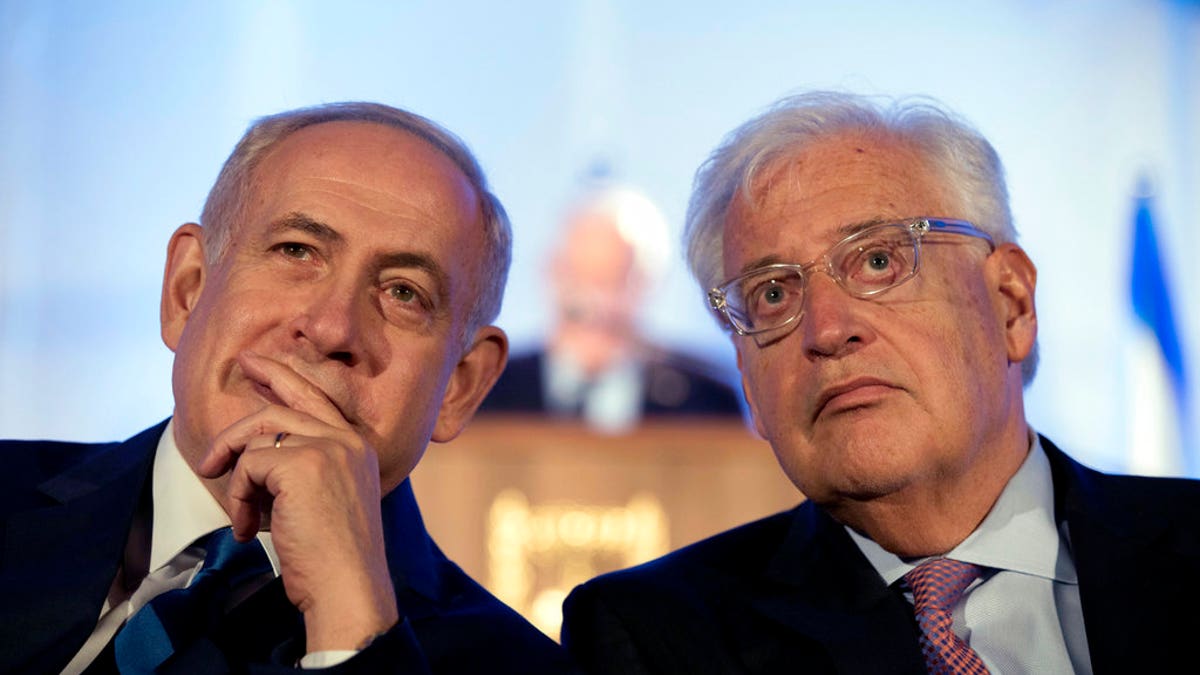
Israeli Prime Minister Benjamin Netanyahu, left and David Friedman, right, the new U.S. ambassador to Israel, attend a ceremony celebrating the 50th anniversary of the liberation and unification of Jerusalem, in front of the walls of the Old City of Jerusalem, May 21, 2017. (Associated Press)
President Donald Trump is considering giving U.S. Ambassador to Israel David Friedman more authority over the U.S. outpost that handles Palestinian affairs, five U.S. officials said, a shift that could further dampen Palestinian hopes for an independent state.
Any move to downgrade the autonomy of the U.S. Consulate General in Jerusalem — responsible for relations with the Palestinians — could have potent symbolic resonance, suggesting American recognition of Israeli control over east Jerusalem and the West Bank.
As president, Trump has departed from traditional U.S. insistence on a "two-state solution" for the Mideast conflict by leaving open the possibility of just one state. As his administration prepares to unveil a long-awaited peace plan, the Palestinians have all but cut off contact, enraged by Trump's decision to move the U.S. Embassy to Jerusalem.
The deliberations come as Friedman growing indignation in the U.S. over partisan comments and other actions in which he has publicly sided with Israel over its critics.
For decades, the Jerusalem consulate has operated differently than almost every other consulate around the world. Rather than reporting to the U.S. Embassy in Israel, it has reported directly to the State Department in Washington, giving the Palestinians an unfiltered channel to engage with the U.S. government.
Until Trump's decision in December to move it from Tel Aviv, the United States did not recognize Jerusalem as Israel's capital. The Jerusalem consulate provided services to Americans in Jerusalem and also served as the de facto U.S. embassy to the Palestinians, who claim east Jerusalem for the capital of a future independent state.
But since Trump earlier this month moved the embassy to Jerusalem, the situation has become more complicated. Now the U.S. maintains an embassy in one part of the city and a separate consulate less than a mile away, potentially creating confusion about who has ultimate authority.
No final decision has been made about what changes to make to the consulate's chain of command, a decision complicated by the consulate's unique circumstances. But the embassy, run by Friedman, is expected to end up with ultimate authority over the consulate, officials said. They weren't authorized to discuss the matter publicly and requested anonymity.
